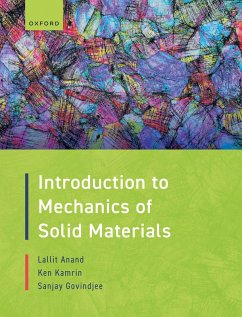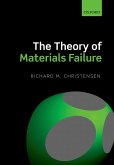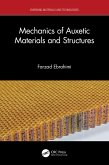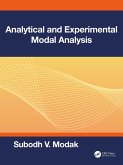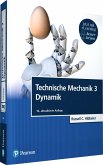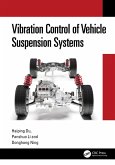Introduction to Mechanics of Solid Materials is concerned with the deformation, flow, and fracture of solid materials. This textbook offers a unified presentation of the major concepts in Solid Mechanics for junior/senior-level undergraduate students in the many branches of engineering - mechanical, materials, civil, and aeronautical engineering among others. The book begins by covering the basics of kinematics and strain, and stress and equilibrium, followed by a coverage of the small deformation theories for different types of material response: (i) Elasticity; (ii) Plasticity and Creep; (iii) Fracture and Fatigue; and (iv) Viscoelasticity. The book has additional chapters covering the important material classes of: (v) Rubber Elasticity, and (vi) Continuous-fiber laminated composites. The text includes numerous examples to aid the student. A substantial companion volume with example problems is available free of charge on the book's companion website.
Dieser Download kann aus rechtlichen Gründen nur mit Rechnungsadresse in A, B, BG, CY, CZ, D, DK, EW, E, FIN, F, GR, HR, H, IRL, I, LT, L, LR, M, NL, PL, P, R, S, SLO, SK ausgeliefert werden.

